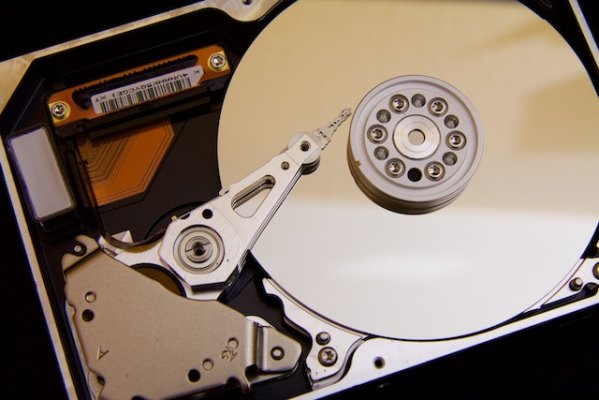A slow computer can be frustrating, especially when you're trying to get work done. But you can take some easy steps to speed up your PC. We will do a quick, and easy to follow, guide which will show you a couple of steps that you can take on your own to try speeding up your PC ( for free ) Then we will take a look at a piece of software that might help if it requires a little bit more effort.
There is a chance that if your computer is still running slow, you may need to upgrade your hardware, but it is always a good thing to try out the free options before you have to spend more money.
If you don't care about spending money and just want to try out one of the tools we like, check out our Outbyte PC Repair review, and see if it could help your issues.
If your computer is running slow, it could be infected with malware. Malware is a type of software that can damage your computer or steal your personal information. You can use a free malware scanner to check for malware on your computer. If you find any, you should remove it immediately. We have done a bunch of reviews of the best antivirus programs that are on the market today, and again there are some that don't cost anything.
So if you think that a virus or malicious program could be causing your system to slow down do a FULL and DEEP system scan. Quick scans can sometimes miss rootkits or other infections, so let the scan run overnight and see if any results for malicious programs are identified. We have done a couple different reviews on anti-malware programs so check them out if you aren't sure where to start.
Alright, if you've run the full system scan and nothing bad has been found, we can move on to the next step. Just like keeping your house clean, the fewer random files that you have laying around the quicker your computer can run. In this section, we'll show you how to get rid of all those unwanted files and help speed up your pc.
First, take a look through your list of installed programs and uninstall any that you no longer use. This will free up some space on your hard drive and could help improve performance.
Next, go through your list of startup programs and disable any that aren't absolutely necessary. Having too many programs starting up when you turn on your computer can cause it to run slowly.
A couple of programs can do this all for you automatically, but they sometimes cost money. For this guide we are looking at the free options first, because we like free... I mean who doesn't right?
If your computer is running slow, one of the first things you can do to speed it up is to delete temporary files. These are typically stored in the Temp folder on your hard drive. To access this folder, open the Start menu and type "%temp%" into the search field. This will open the Temp folder and allow you to view its contents.
You can delete these files by selecting them and pressing the Delete key on your keyboard. However, be sure not to delete any important system files. If you're not sure which files are safe to delete, you can always check with a computer professional before proceeding.
Deleting temporary files is a quick and easy way to help speed up your computer. By taking this simple step, you can help keep your computer running at its best.
Over time, as you add and remove files from your hard drive, it can become fragmented. This means that the files are spread out in different parts of the drive, which can slow down your computer. Defragmenting your hard drive can help speed up your computer by putting all the files back in order.
Here's how to defragment your hard drive:
1. Click the Start button, then type "defrag" into the search box.
2. Click "Disk Defragmenter."
3. Select the hard drive you want to defragment and click "Analyze." Disk Defragmenter will analyze your hard drive and tell you how much fragmentation there is.
4. If the amount of fragmentation is more than 10%, click "Defragment.
Like when we talked about your hard drive being like a dirty room, a fragmented disk system can slow things down. Usually computers keep themselves in pretty good shape now through automatic defrag tools, but there might have been some issue running the clean. Checking it out never hurts, and again this is a totally free scan and fix on your system.
If your computer is running slowly, you may need to disable some start-up programs. Start-up programs are usually not essential to the functioning of your computer, and can often be safely disabled.
To disable start-up programs, open the "System Configuration" utility. This can be done by typing "msconfig" into the search bar on the Start menu. Once the System Configuration utility is open, click on the "Startup" tab. This will show you a list of your computer's start-up programs.
To disable a start-up program, simply uncheck the box next to it. Once you have disabled all the unnecessary start-up programs, click on the "OK" button and reboot your computer. Your computer should now be running faster.
This tip will help on two aspects of a slow PC. The first is if your computer just seems to take forever to start up because as you add programs to your PC they can sometimes get added to the startup routine. This in turn slows down the rate that your computer can get up and running.
The second aspect is that sometimes these apps will run in the background, and you won't even see them; but you'll feel their impact on your system. They can stay hidden, provide no value to you, and eat up your RAM and system resources. If you aren't using them, then shutting them down is no harm.
If your computer is running slow, there are a number of things you can do to speed it up, which we have outlined above. But if you notice a common theme, it is that these things can be run before you get to time when you're system is moving as fast as a snail. Many of the things that have been reviewed can be set up to be scheduled so you don't even need to do anything.
And just like your room, if you keep it clean every day you will never have to spend hours when it finally reaches its tipping point. So 10 minutes a day can avoid those 5-10 hour days that you have to spend cleaning up.
And, if nothing more than to keep your speed going using an antivirus program on your computer is easy, and can keep your data safe. You don't want people to be stealing your data like password and banking info. Not trying to scare anyone, but there is no real reason not to have an anti virus system set up.
If your computer is running slow, there are a few things you can do to speed it up. By following these simple steps we hope that you have been able to speed up your computer a bit. If they haven't, you can check out our reviews of the best system optimizers on your PC, which could be your next step. We know how annoying it can be to have a slow computer, especially when you need it to be false.
If you haven't been able to see any speed improvement with any of these steps or with any of the programs, you might have to look at adding more RAM ( if your PC has room ) or getting a new system.





